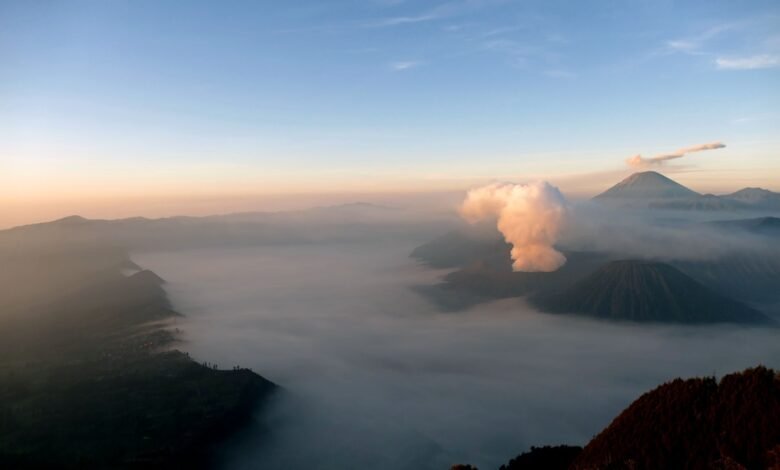
Indonesia, with over 17,000 islands, is a captivating archipelago that offers diverse landscapes, cultures, and experiences. Each island holds its own charm, from world-famous beaches to hidden cultural treasures. Here’s a guide to some of Indonesia’s most remarkable islands and what makes them unique.
1. Java: The Heart of Indonesia
Java is Indonesia’s cultural and economic center, home to bustling cities, ancient temples, and stunning volcanoes.
- Jakarta: Indonesia’s capital and a vibrant metropolis with a blend of history, skyscrapers, and nightlife.
- Yogyakarta: Known for its traditional arts and cultural heritage, Yogyakarta is the gateway to Borobudur and Prambanan, two UNESCO World Heritage Sites.
- Mount Bromo: Famous for its sunrise views, this active volcano offers dramatic landscapes and is a popular trekking destination.
2. Bali: The Island of the Gods
Bali is world-renowned for its beaches, spiritual atmosphere, and scenic beauty, making it a top destination for tourists.
- Beaches: From surfing at Kuta Beach to relaxing on Nusa Dua’s serene shores, Bali’s beaches cater to all tastes.
- Ubud: Known as Bali’s cultural heart, Ubud offers lush rice terraces, traditional dance performances, and vibrant art markets.
- Temples: Iconic temples like Uluwatu and Tanah Lot are perched on cliffs and provide breathtaking views.
3. Sumatra: Adventure and Wildlife
Sumatra is Indonesia’s wild side, with lush rainforests and a wealth of biodiversity.
- Bukit Lawang: A sanctuary for endangered orangutans, where you can trek through the jungle and witness these incredible primates.
- Lake Toba: The world’s largest volcanic lake, offering serene landscapes, volcanic hot springs, and traditional Batak culture.
- Mentawai Islands: Known for their surfing breaks, these islands are a paradise for surfers looking for less crowded waves.
4. Komodo Island: Home of the Dragons
A UNESCO World Heritage Site, Komodo Island is famous for its resident Komodo dragons, the world’s largest lizards.
- Komodo National Park: Guided tours allow visitors to safely observe Komodo dragons in their natural habitat.
- Pink Beach: This unique beach, with pink-hued sand, is one of only a few in the world.
- Diving and Snorkeling: The island’s crystal-clear waters are perfect for exploring coral reefs teeming with marine life.
5. Lombok: Bali’s Laid-Back Neighbor
Lombok offers beautiful beaches and scenic mountains but is generally quieter than Bali.
- Mount Rinjani: A challenging trek to the summit of this volcano rewards hikers with views of a crater lake.
- Gili Islands: A trio of small islands off Lombok’s coast known for snorkeling, diving, and vibrant nightlife.
- Senggigi Beach: A picturesque beach with calm waters, making it ideal for relaxation and sunset views.
6. Sulawesi: Cultural Diversity and Underwater Wonders
Sulawesi is known for its unique landscapes, traditional villages, and exceptional diving spots.
- Tana Toraja: Renowned for its elaborate funeral rituals and distinctive traditional architecture.
- Bunaken Marine Park: A diver’s paradise, known for its diverse marine life, coral reefs, and clear visibility.
- Wakatobi National Park: Another diving hotspot with abundant coral reefs and rich marine biodiversity.
7. Papua: Untamed Wilderness and Unique Tribes
Papua, one of Indonesia’s most remote areas, is rich in natural beauty and indigenous cultures.
- Raja Ampat: An archipelago known for having one of the richest marine ecosystems in the world, ideal for diving and snorkeling.
- Baliem Valley: Home to indigenous tribes who have preserved traditional lifestyles, offering a glimpse into ancient customs and practices.
- Lorentz National Park: A UNESCO site that includes glaciers, rainforests, and rare wildlife, such as the tree kangaroo.
Tips for Island Hopping in Indonesia
- Best Time to Visit: The dry season from May to September is ideal for most islands, as the weather is sunny with minimal rain.
- Traveling Between Islands: Domestic flights are the fastest way to travel between distant islands. Ferries are also available but may take longer.
- Respect Local Customs: Many islands have unique cultural traditions, so be respectful and learn basic etiquette, especially in traditional regions.



